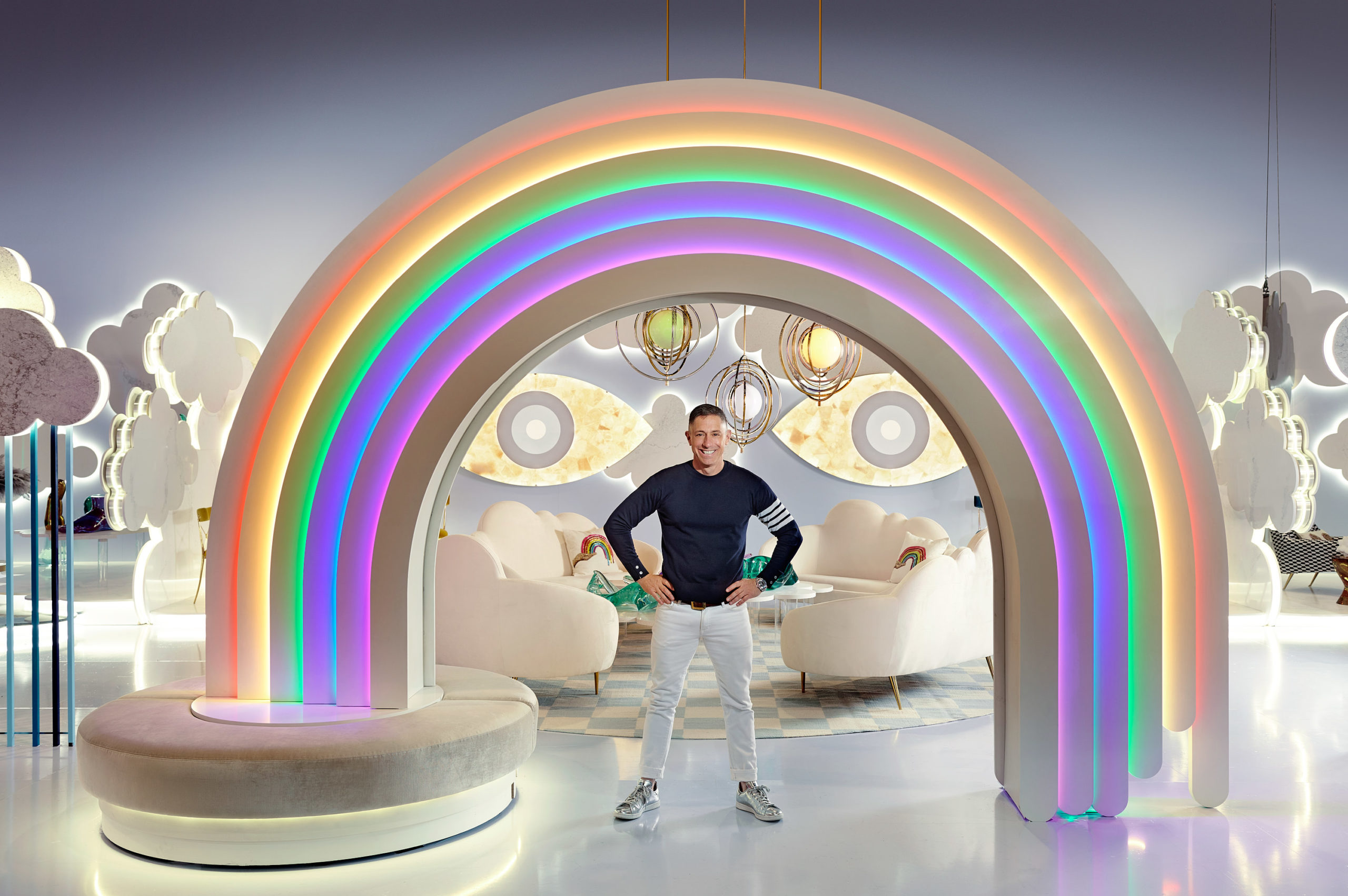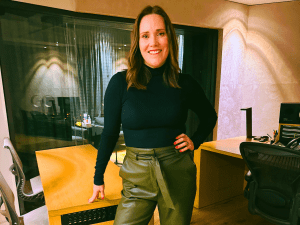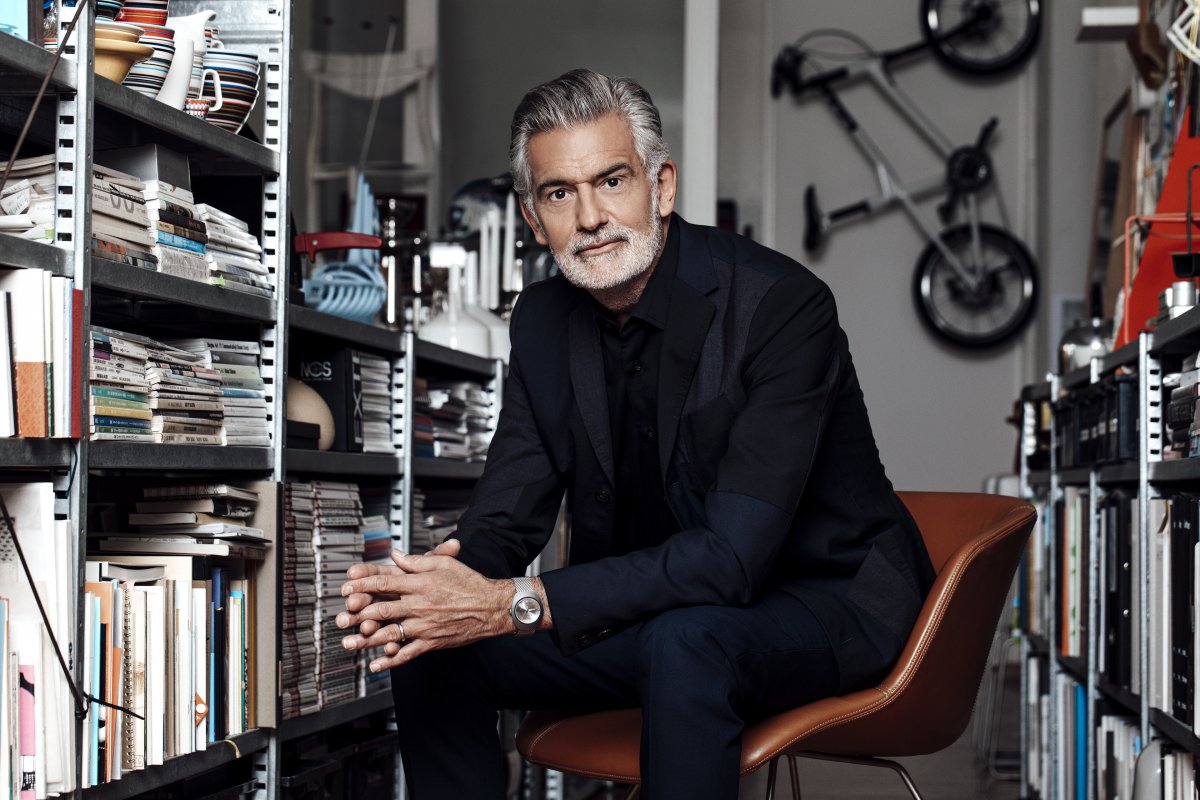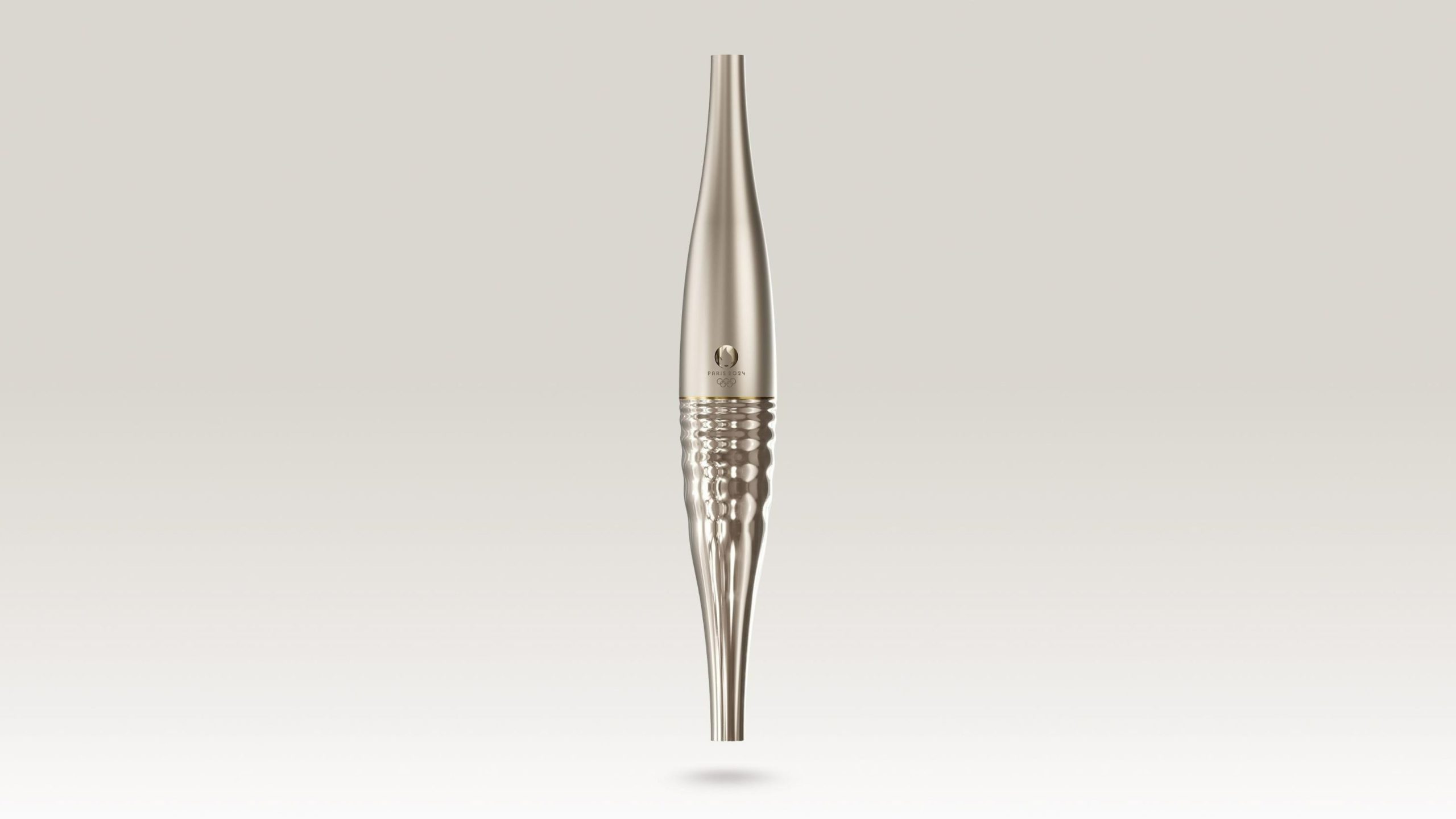[vc_row][vc_column][vc_column_text]American designer Jonathan Adler has certainly had a storied career. When the movie business didn’t work out for the New Jersey native, Adler pursued a simpler life and tried his hand as a potter, which eventually led to where he is today, one of the world’s most successful and recognizable luxury interior designers. His work is instantly recognizable, adhering to an ethos that defies conventional design laws, choosing instead to play by his own rules. Whether a decadent velvet armchair or a neon-hued obelisk, his designs are as charismatic and eccentric as he is.
While in Toronto at the Interior Design Show (IDS), in collaboration with Caesarstone, Adler took a moment to discuss his approach to design, building a business empire, and of course — glamour.[/vc_column_text][vc_separator][vc_column_text]WHAT DOES A GREAT DESIGN EXPERIENCE LOOK LIKE TO YOU?
Design should be intuitive. I guess it’s about context. If you’re at a design show, you want to do something completely over the top, surreal, and fantastical. In your own life, I think design is good if it is personal and makes you happy.
HOW DO YOU APPROACH NEW PROJECTS?
Whether a product, interior, or installation, design is about context. For instance, here at IDS I need to create something that is a spectacle. Whereas if I’m designing an interior for a client, I have to think about the essence of each person and how I can reflect them at their most eccentric and glamorous. If it’s a commercial project, like a hotel, I always try to create a sense of place. As an interior designer, I see myself as a slimming mirror for my clients. It’s really about thinking about context and not merely imposing my vision.
IN AN ERA DOMINATED BY SOCIAL MEDIA, WHAT DOES IT MEAN TO CREATE A SPECTACLE?
To me, a spectacle should certainly be grammable. It should be something that ideally takes your breath away, and something very communicative. I’m not a terribly empathetic person in real life, but as a designer, I strive to create things that truly communicate with people. I think a lot of designers fail when they make things that are oblique. It’s about empathy and communicating a spirit or an idea. That’s part of the spectacle.[/vc_column_text][vc_single_image image=”17677″ img_size=”full” add_caption=”yes” alignment=”center”][vc_column_text]THERE IS A SENSE OF PLAYFULNESS AND WHIMSICALITY IN YOUR DESIGN. IS OPTIMISM SOMETHING THAT IS IMPORTANT TO YOU IN YOUR DESIGN PROCESS?
I think I might do myself a disservice as a designer because as a person I’m kind of glib. I feel like if I’m going to make something new, it has to have a true raison d’etre. It has to be a little bit over the top because otherwise why bother? If that seems like playfulness, so be it. I’m a strange mix of someone who seems playful but I’m actually quite brooding, which I think is kind of a requisite combo to be good at anything because you need to have the sense of possibility that comes with being glib and you need to be analytical to make something as good as it can and should be.
HOW DO YOU LIKE TO APPROACH CHALLENGES? DO YOU LIKE BEING OUTSIDE OF YOUR COMFORT ZONE?
I always look for new design challenges. The fun thing about being a designer versus an artist is that with design there’s an element of practicality; you’re trying to solve a problem. Whereas when you’re an artist, there is this sort of blue sky thinking that I don’t particularly like. I really like having a specific problem to solve, whether I’m designing a booth at a design show or trying to think about what lamp I want to have on my coffee table.
OVER THE COURSE OF YOUR CAREER, HAVE YOU ALWAYS HAD A VERY CLEAR SENSE OF YOUR IDENTITY AS A DESIGNER?
I think a lot of artists or designers can get stuck and be very one note. I knew early on that I wanted to be prolific and protean, and actually speak in a myriad of voices, which I suppose is atypical. People tend to really zero in on a particular thing but if you look at my oeuvre, you’ll see a zillion different spirits at play, whether it’s organic modernism, psychedelic pop, or futuristic fancy. I think my voice is really about not having a voice. It’s about having a million voices and that has become my thing.
YOU MENTIONED GLAMOUR PREVIOUSLY. HOW DO YOU DEFINE GLAMOUR?
Glamour is really challenging to define. It’s sort of an elusive sprite. It’s something people always say, but they never think about what it means. To me, glamour is about being confident, memorable, and a little sexy.
[/vc_column_text][vc_single_image image=”17676″ img_size=”full” add_caption=”yes” alignment=”center”][vc_column_text]YOU’VE BUILT A MASSIVE BUSINESS EMPIRE. WHAT HAVE BEEN SOME OF THE CHALLENGES THAT YOU’VE COME ACROSS ALONG THE WAY?
I am an accidental entrepreneur. I never even thought for one second I was building a business let alone a brand. As much as I’ve had success, it’s because my stuff is all very authentically me. It’s not the product of a business plan or a white space. Whenever I hear young people talking about disrupting something, I’m like, “barf.” I get that if you want to be an entrepreneur, you need to think like that. But for me it was about living in a world in which I just sort of bumbled along and was true to myself. Then, many years after I started, I realized what I had done. It never crossed my mind that I was doing anything other than making shit.
WHAT WOULD YOU SAY ARE THE PILLARS OF A GREAT BRAND?
It comes back to this idea of authenticity, which is one of those many business phrases. But I think a good brand is one with a very clear and singular voice that can only be born of authenticity rather than a business plan or a white space. It’s kismet. It’s like trying to define the undefinable. People can try and do anything they want via deduction, but it really is about a magic confluence of factors.
WHAT DO YOU THINK HAS BEEN THE LESSON THAT HAS TAKEN YOU THE LONGEST TO LEARN ABOUT YOURSELF AS A DESIGNER AND AS A BUSINESSPERSON?
It’s taken a lot of time for me to understand what I really care about, which is the actual product that I make versus the business. The business side of things is purely a means to an end. What I care about, and what I hope will ultimately be my legacy, is the actual shit that I’ve made. It’s taken me a long time to realize that’s my true and only priority.[/vc_column_text][/vc_column][/vc_row]












